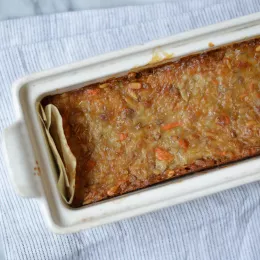Sunday, January 13, is Nation Gluten-Free Day, although some sources state it’s the second Monday in January. Whichever day you celebrate it, here’s what you should know about the food holiday.
A protein found in grains like wheat, barley, rye, and triticale, gluten helps give breads, cakes, and pastas their form and the texture we love. Gluten can also be found in a number of foods including soy sauce, seasoning blends, salad dressings, chicken broth, and vodka.
If you’re avoiding gluten, read your labels carefully. It can also trigger an autoimmune response in people with celiac disease, about 1 in 133 Americans, or 3 million people. Gluten damages the villi in the small intestine, reducing the body’s ability to absorb nutrients into the blood stream. This can lead to malnourishment and a variety of other illnesses and diseases. Celiac disease is a genetic disorder that can lie dormant until it’s triggered by a stressful event. Because of the range of symptoms associated with celiac disease, it can be difficult to diagnose. Testing for celiac disease includes an antibody blood test, a genetic test, and a biopsy of the small intestine. 18 million people—six times the number of people with celiac disease—have non-celiac gluten sensitivity. This is still being researched, with studies indicating it may be sensitivity to something else in grains or even FODMAPs. If you suspect you have a gluten sensitivity, consult with your doctor.
This post was originally published by the Natural Gourmet Institute. Learn more about today's Natural Gourmet Center.


